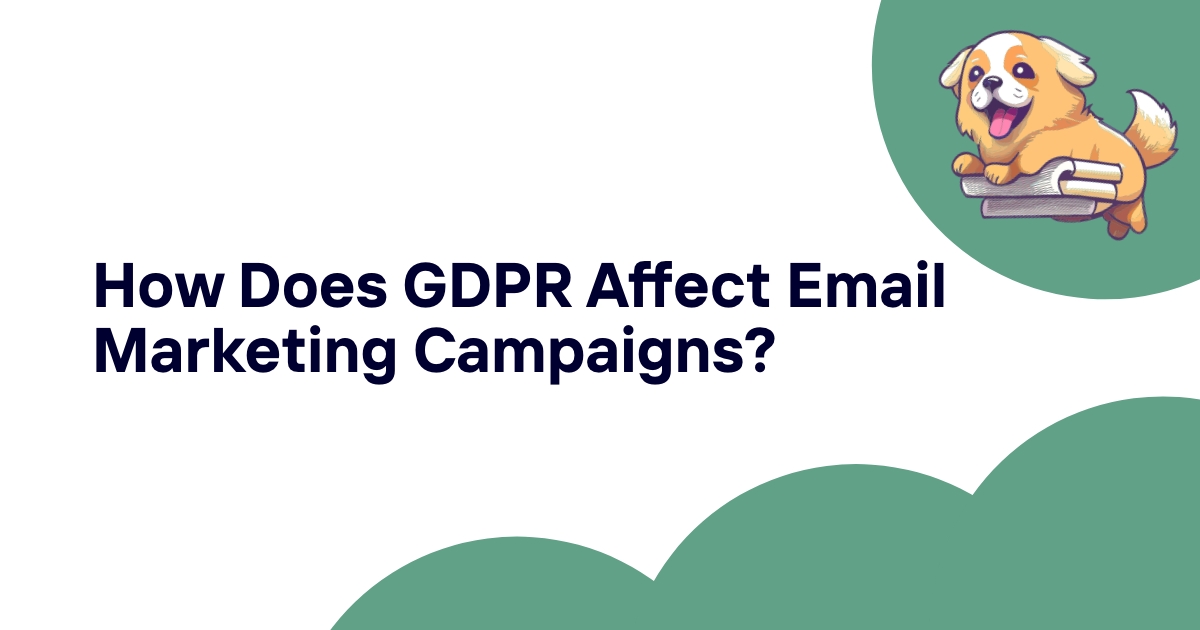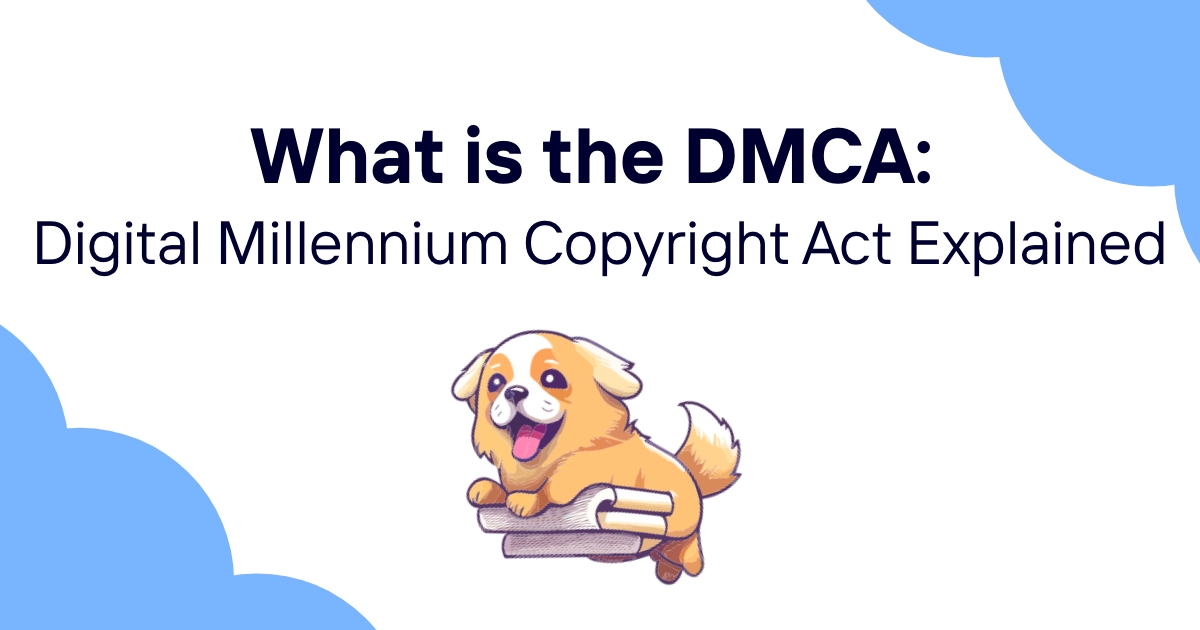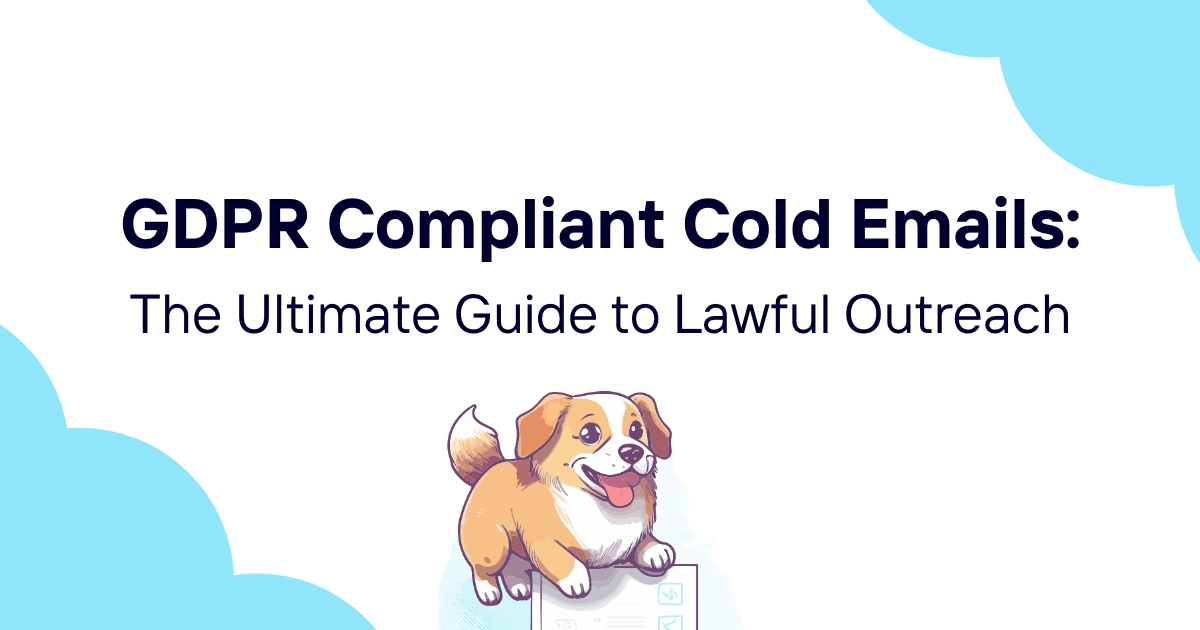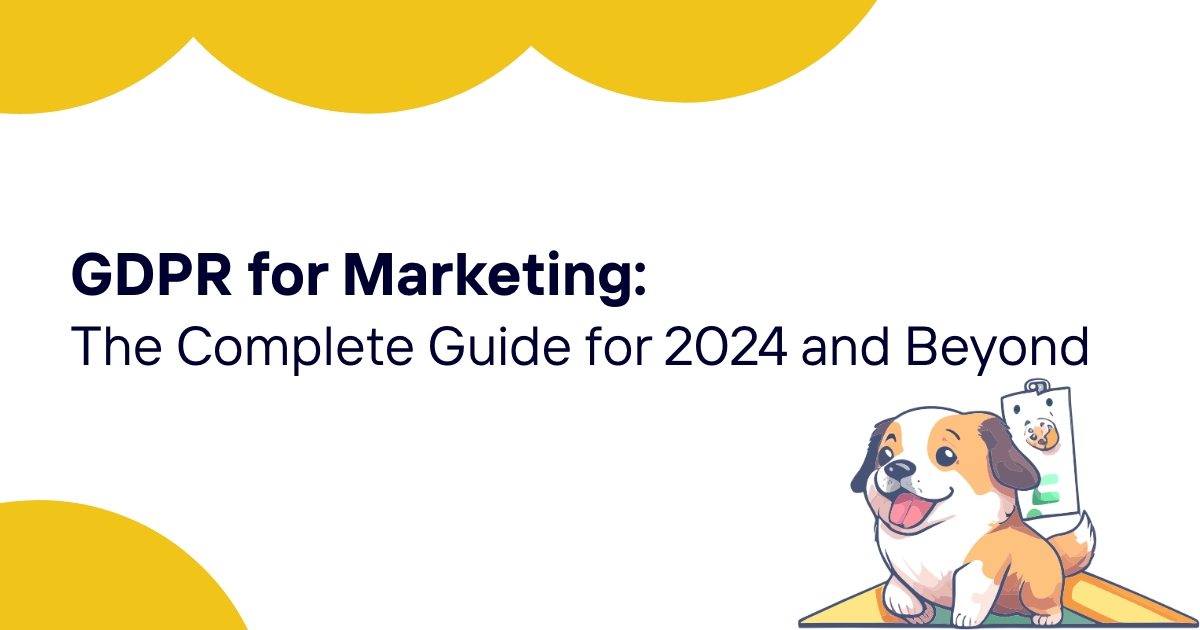Email remains one of the most effective marketing channels, with businesses sending billions of promotional messages daily. But the General Data Protection Regulation has fundamentally changed how organizations can approach email marketing to EU residents. Getting it wrong can cost millions in fines.
The regulatory landscape presents both challenges and opportunities. Companies that understand GDPR requirements can build stronger customer relationships while avoiding costly penalties. Those that don't risk significant financial and reputational damage.
Table of contents
- Compliance monitoring dashboards
- Legal bases for email marketing under GDPR
- The ePrivacy Directive connection
- Consent requirements for email marketing
- Legitimate interest as a legal basis
- Email data retention and storage
- Technical security measures
- Marketing to existing customers vs new prospects
- Subject access rights and email marketing
- International transfers and email marketing
- Common GDPR email marketing violations
- Best practices for GDPR-compliant email marketing
- Tools and technologies for compliance
Understanding GDPR's impact on email marketing
The General Data Protection Regulation treats email addresses as personal data. This classification triggers specific obligations for businesses collecting, storing, and using email addresses for marketing purposes. Organizations must identify a lawful basis before processing any personal data, including sending promotional emails.
Email marketing campaigns now require careful planning around data protection principles. The regulation demands transparency about data use, purpose limitation, and data minimization. Companies can't simply collect email addresses without clear justification and explicit communication about intended use.
Processing personal data for direct marketing purposes falls under GDPR's scope. This includes building email lists, segmenting audiences, personalizing content, and tracking campaign performance. Each activity requires legal justification and appropriate safeguards.
The regulation applies to any organization processing EU residents' personal data, regardless of where the business operates. A US company sending marketing emails to German customers must comply with GDPR requirements. Geographic boundaries don't limit the regulation's reach.
Legal bases for email marketing under GDPR
GDPR provides six legal bases for processing personal data. Email marketing campaigns typically rely on two primary justifications: consent and legitimate interests.
Encryption represents the most straightforward approach for new customer acquisition. Valid consent must be freely given, specific, informed, and unambiguous. Pre-ticked boxes or silent acceptance don't meet GDPR standards. Organizations must obtain active opt-in confirmation before adding individuals to marketing lists.
Legitimate interests offers more flexibility but requires careful assessment. Companies must demonstrate that their commercial interests don't override individual privacy rights. This basis works better for existing customer communications than cold prospecting.
Contract performance applies when marketing communications support ongoing customer relationships. Software companies can use this basis to send product updates, feature announcements, or related service promotions to paying customers.
The other legal bases (legal obligation, vital interests, and public task) rarely apply to commercial email marketing situations.
Organizations must choose their legal basis before starting data processing activities. They can't switch between different justifications if their original choice proves problematic.
The ePrivacy Directive connection
The ePrivacy Directive creates additional complexity for email marketing compliance. While GDPR governs personal data processing, the ePrivacy Directive specifically addresses electronic communications privacy.
Article 13 of the ePrivacy Directive generally requires opt-in consent for direct marketing emails. This requirement exists alongside GDPR obligations, creating a dual compliance framework. Organizations must satisfy both regulations simultaneously.
The directive includes an important exception for existing customer relationships. Companies can send marketing emails about similar products or services to current customers without explicit consent. But they must provide clear opt-out mechanisms and inform customers about their right to object.
This "soft opt-in" provision helps businesses maintain relationships with existing customers while respecting privacy preferences. A bookstore can email customers about new releases in genres they've previously purchased. A software company can promote additional features to current subscribers.
The upcoming ePrivacy Regulation will likely clarify these requirements, but organizations must work within current rules until new legislation takes effect.
Consent requirements for email marketing
Valid consent under GDPR requires meeting several specific criteria that differ significantly from pre-regulation practices.
Free consent means individuals must have genuine choice without negative consequences for refusing. Companies can't make services conditional on marketing opt-ins unless the processing directly relates to service delivery.
Specific consent prohibits blanket permissions for undefined marketing activities. Organizations must clearly explain what types of communications they'll send and how often. Vague statements about "promotional emails" don't meet specificity requirements.
Informed consent demands comprehensive disclosure about data processing activities. Companies must explain who will receive data, why it's needed, how long it will be stored, and what rights individuals have.
Unambiguous consent requires clear affirmative action. Pre-checked boxes, inactivity, or silence don't constitute valid consent. Individuals must actively confirm their agreement through clicks, signatures, or other positive actions.
Organizations must maintain detailed records proving consent was properly obtained. This documentation becomes critical during regulatory investigations or individual rights requests.
Consent can be withdrawn at any time with the same ease it was given. Companies must honor withdrawal requests promptly and stop all related processing activities.
Legitimate interest as a legal basis
Legitimate interests offers more operational flexibility than consent but requires rigorous justification through a three-part test.
Purpose test: Organizations must identify specific legitimate interests that justify the processing. Commercial interests like customer retention, business development, or market research can qualify if properly articulated.
Necessity test: Companies must demonstrate that email marketing represents the least intrusive method for achieving their legitimate interests. Alternative approaches with lower privacy impact would undermine this justification.
Balancing test: Individual privacy rights must not outweigh business interests. Factors include the nature of personal data, processing methods, potential harm to individuals, and reasonable expectations about data use.
The legitimate interests assessment requires documentation showing how organizations evaluated each test component. Regulators expect thorough analysis supporting the chosen legal basis.
Individuals retain the right to object to processing based on legitimate interests. Companies must respect objections unless they can demonstrate compelling legitimate grounds that override individual interests.
This legal basis works better for existing customer communications than new prospect outreach. Established relationships create stronger justification for ongoing marketing communications.
Email data retention and storage
GDPR's data minimization principle limits how long organizations can retain email addresses and related marketing data. Companies must establish clear retention periods based on processing purposes and legal requirements.
Active marketing lists require regular review and cleanup. Inactive subscribers who haven't engaged with campaigns over extended periods may no longer justify data retention. Organizations should consider automatic removal of dormant contacts after defined timeframes.
Storage limitation means keeping personal data only as long as necessary for original processing purposes. Marketing automation platforms often retain detailed engagement histories indefinitely, but GDPR requires periodic evaluation of data necessity.
Data erasure obligations apply when retention periods expire or individuals exercise their right to be forgotten. Technical systems must support complete data removal, not just marking records as inactive.
Email marketing platforms should implement automated retention policies that remove personal data after predetermined periods. Manual processes become unwieldy as contact lists grow larger.
Organizations must document their retention policies and be able to demonstrate compliance with storage limitation requirements. Regular audits help identify data that should be deleted.
Technical security measures
GDPR requires appropriate technical measures to protect personal data throughout processing activities. Email marketing systems handle significant volumes of personal information requiring robust security controls.
Encryption protects data both in transit and at rest. Email service providers should encrypt communications between servers and implement database encryption for stored contact information. End-to-end encryption offers the strongest protection but may limit marketing automation capabilities.
Access controls limit who can view and modify marketing lists. Role-based permissions ensure employees only access data necessary for their job functions. Multi-factor authentication adds additional security layers for administrative accounts.
Data backup and recovery procedures must balance business continuity needs with privacy protection. Encrypted backups stored in secure locations help organizations recover from technical failures while maintaining data protection standards.
Monitoring and logging help detect unauthorized access attempts or unusual activity patterns. Security information and event management (SIEM) systems can identify potential breaches requiring notification under GDPR's incident reporting requirements.
Regular security assessmentsidentify vulnerabilities before they can be exploited. Penetration testing, vulnerability scans, and security audits help maintain strong protective measures.
Email marketing platforms should undergo regular security evaluations to verify they meet organizational and regulatory requirements.
Marketing to existing customers vs new prospects
GDPR creates different compliance pathways for marketing to existing customers compared to new prospect outreach.
Existing customer communications often qualify for less restrictive treatment under both GDPR and the ePrivacy Directive. Companies can rely on legitimate interests or the soft opt-in exception to continue marketing similar products or services to current customers.
The key requirement is providing clear opt-out mechanisms and respecting withdrawal requests. Customers must understand they can stop marketing communications while maintaining their primary service relationship.
New prospect outreach typically requires explicit opt-in consent before sending marketing emails. Cold email campaigns to purchased lists or publicly scraped addresses rarely meet GDPR standards unless recipients have specifically consented to communications from the sender.
Standard Contractual Clauses (SCCs) following form submissions or content downloads can proceed with proper consent mechanisms in place. Clear disclosure about follow-up communications during the opt-in process supports ongoing engagement.
Segmentation strategies should consider relationship status when determining appropriate legal bases and communication frequency. Existing customers may tolerate more frequent communications than new prospects who've only provided basic contact information.
Organizations benefit from clearly distinguishing between customer retention marketing and new prospect acquisition in their compliance documentation and technical systems.
Subject access rights and email marketing
GDPR grants individuals specific rights regarding their personal data that directly impact email marketing operations.
Right of access allows individuals to request copies of all personal data an organization holds about them. This includes email addresses, engagement history, segmentation tags, and any behavioral tracking information collected through email campaigns.
Right to rectification requires organizations to correct inaccurate personal data upon request. Email marketing systems must support updating contact information, preference settings, and profile data.
Right to erasure (right to be forgotten) compels organizations to delete personal data in certain circumstances. Marketing lists must support complete contact removal, including backup systems and third-party integrations.
Right to restrict processing allows individuals to limit how their data is used while disputes are resolved. Email marketing systems should support flagging accounts to prevent further communications during restriction periods.
Right to data portability enables individuals to obtain their personal data in structured, commonly used formats. Marketing platforms should export contact information, engagement histories, and preference settings in portable formats.
Right to object specifically applies to direct marketing activities. Organizations must stop all marketing communications when individuals exercise this right, regardless of the original legal basis for processing.
Response timeframes for rights requests are typically 30 days, with possible extensions for complex requests. Organizations must maintain processes for handling these requests efficiently.
International transfers and email marketing
Many email marketing platforms operate across international boundaries, creating potential GDPR compliance issues for data transfers outside the European Economic Area.
Adequacy decisions from the European Commission allow unrestricted transfers to certain countries with equivalent data protection standards. The UK, Canada, and several other jurisdictions benefit from adequacy status, simplifying compliance for organizations using service providers in these locations.
Standard Contractual Clauses (SCCs) provide a mechanism for transfers to countries without adequacy decisions. Email marketing platform providers often implement SCCs to support EU customer compliance requirements.
Binding Corporate Rules (BCRs) allow multinational corporations to transfer data between affiliates under approved internal governance frameworks. Large email service providers may implement BCRs to streamline international operations.
Organizations must verify that their email marketing technology stack includes appropriate transfer mechanisms for any international data flows. This includes primary platforms, analytics tools, and integration partners.
Data Processing Agreements (DPAs) with email marketing vendors should specifically address international transfer requirements and include necessary transfer mechanisms. Standard terms may not provide sufficient protection for EU personal data.
The complexity of international transfer requirements makes vendor due diligence particularly important for email marketing technology selection.
Common GDPR email marketing violations
Several recurring compliance failures result in regulatory enforcement actions and significant financial penalties.
Purchased email lists without proper consent documentation create immediate GDPR violations. Organizations can't demonstrate lawful processing when they don't control the original data collection circumstances.
Pre-checked opt-in boxes fail to meet unambiguous consent requirements. Marketing forms must require active selection of marketing communications preferences.
Unclear privacy notices that don't adequately explain marketing data processing purposes create informed consent problems. Generic privacy policies often don't provide sufficient detail about email marketing activities.
Ignoring opt-out requests violates multiple GDPR requirements and can trigger significant penalties. Automated systems should process unsubscribe requests immediately and confirm completion to requesters.
Sharing email lists with third parties without appropriate legal basis constitutes unauthorized disclosure of personal data. Joint marketing campaigns require careful attention to data sharing agreements and individual consent scope.
Inadequate security measures for email marketing platforms can result in data breaches requiring regulatory notification and individual communication. Poor access controls and unencrypted data storage create particular risks.
Excessive data retention beyond business necessity violates storage limitation principles. Marketing automation platforms that retain detailed engagement histories indefinitely may accumulate compliance liabilities.
Understanding these common pitfalls helps organizations proactively address potential compliance gaps in their email marketing programs.
Best practices for GDPR-compliant email marketing
Successful email marketing under GDPR requires systematic approaches that embed privacy protection throughout campaign development and execution.
Double opt-in processes provide stronger evidence of valid consent while reducing invalid email addresses in marketing lists. Confirmation emails allow individuals to verify their subscription intent and create documented proof of agreement.
Granular preference centers enable individuals to control exactly what types of communications they receive. Separate options for product updates, promotional offers, newsletters, and event announcements support informed consent requirements.
Clear data collection forms explain exactly how email addresses will be used, who will have access to the information, and how long it will be retained. Transparency builds trust while supporting legal compliance.
Regular list hygiene removes inactive subscribers, corrects invalid addresses, and honors suppression requests. Automated processes can identify contacts that should be removed based on engagement thresholds or time-based criteria.
Privacy-first design considers data protection implications throughout email campaign development. Template designs, personalization strategies, and tracking implementations should minimize personal data processing where possible.
Compliance monitoring dashboards ensure marketing teams understand GDPR requirements and can identify potential compliance issues. Regular updates help teams stay current with evolving regulatory guidance and enforcement trends.
Compliance monitoring dashboards evaluate email marketing technology providers' data protection capabilities and compliance commitments. Due diligence should cover security measures, data processing agreements, and international transfer mechanisms.
These practices create sustainable compliance frameworks that support business growth while respecting individual privacy rights.
Tools and technologies for compliance
Modern email marketing platforms increasingly incorporate built-in GDPR compliance features that simplify regulatory adherence.
Consent management platforms centralize preference collection and maintenance across multiple touchpoints. These systems create unified views of individual consent status and automatically enforce communication restrictions.
Data mapping tools help organizations understand how personal data flows through their email marketing technology stack. Visual representations of data processing activities support impact assessments and compliance documentation.
Automated retention management removes personal data after predetermined periods without manual intervention. Policy-based deletion helps organizations maintain compliance with storage limitation requirements.
Rights management systems streamline responses to individual requests for access, rectification, erasure, and portability. Automated workflows reduce response times and ensure consistent handling across different request types.
Privacy impact assessment templates guide organizations through systematic evaluation of new email marketing initiatives. Structured assessments identify potential risks and mitigation strategies before campaign launch.
Compliance monitoring dashboards provide real-time visibility into email marketing compliance status. Alerts for unusual activity, consent anomalies, or system issues help organizations respond quickly to potential problems.
Integration capabilities ensure email marketing platforms can share compliance-relevant information with other business systems. APIs support data synchronization for preference management, suppression lists, and audit trails.
Technology selection should prioritize platforms that support compliance requirements out of the box rather than requiring extensive customization or manual processes. One email marketing platform to consider would be MailDiver which provides a fully hosted solution and with infrastructure based within Europe.
Managing GDPR compliance for email marketing programs requires significant expertise, ongoing attention, and robust systems. Organizations must balance legal requirements with business objectives while maintaining operational efficiency.
Compliance software like ComplyDog streamlines this complex process by providing centralized management of data protection requirements across all business activities, including email marketing. The platform helps companies document their legal bases, manage consent records, track data retention policies, and respond to individual rights requests. By automating compliance workflows and providing clear visibility into regulatory status, ComplyDog enables businesses to run effective email marketing campaigns while meeting GDPR obligations with confidence.


















